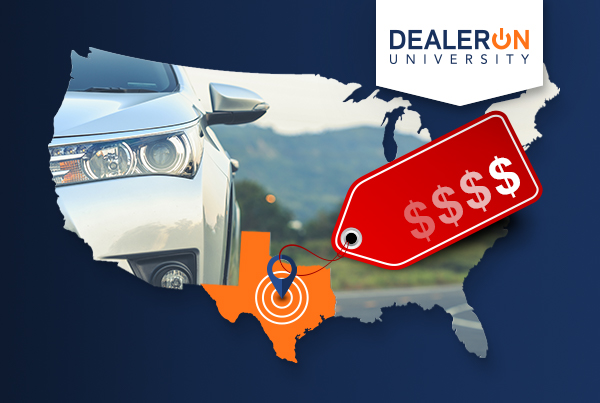

Location based ads are in the process of changing due to new privacy laws, but what does that mean for dealerships like yours?
Privacy is undergoing a renaissance in the online world. Excellent news for consumers, who have overwhelmingly fed this demand, but not quite as good for advertisers. While the updates can be concerning for marketing purposes, the news is not as dire as it seems at first. Companies are already finding viable workarounds aimed at giving advertisers much the same results while following the restrictions.
…contextual target uses things like local geofences to deduce a user’s activity.
Contextual targeting
With more of the population vaccinated, public spaces are gaining traffic as shoppers who were stuck indoors look for an excuse to go outside. Both store visits and people who said they were comfortable with them rose demonstrably. This is right when Apple introduces a privacy measure that users have to opt-in to be individually tracked. Unsurprisingly, only 6% of Apple users have opted in, and remember, Apple users are nearly half of the entire market.
The solution (as anyone who has peeked at this section’s header will note) is contextual targeting. In essence, the old method looked at online behaviors, while contextual target uses things like local geofences to deduce a user’s activity. It will be less precise, but as with all of these potential solutions to the privacy wave, the hope is that the loss of precision will be minor.
Ready to maximize your dealership website experience?
Schedule a free demo and we’ll show you how!
2. Mobile carriers have data
AT&T, T-Mobile, and Verizon all have extensive data on their users that is potentially sharable. T-Mobile automatically shares its customers’ web and mobile data with advertisers unless the customer specifically opts outs. According to them, they use a program similar to Google’s FLoC to scrub personally identifying features from that data, instead lumping users into groups with a broadly-similar interest.
If a user has elected to get push notifications from a store or restaurant, marketers can potentially track their locations. This keeps location-specific businesses like your dealership in the mix. Loyalty programs are potentially an excellent source of this data.
There will undoubtedly be more solutions as savvy marketers adapt. Keep your eyes on this space for further updates.
More Articles From DealerOn University
-
- For customer experience, your website is only the beginning. These six tips will help improve your customer experience.
- Everything you need to know about the Google FLoC privacy update.
- Looking at EVs on the horizon.


